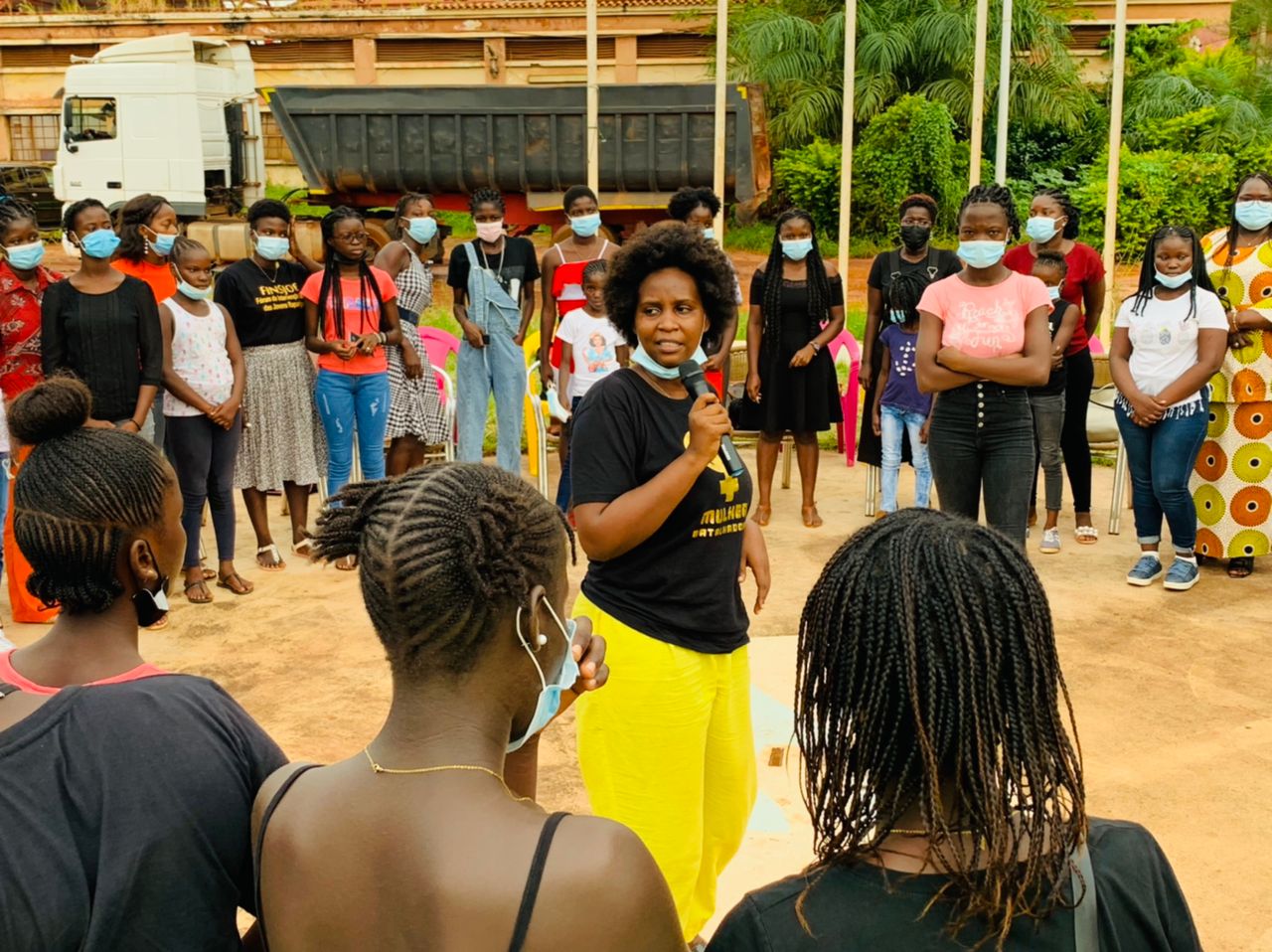Photo: UNDP, 2021
The project entitled "Suta mindjer Kaba Dja" (Stop Hitting Women), is one of the community projects funded by UNDP through the Na No Mon platform and implemented by the organization, Mindjer Ika Tambur. This educational project aims to provide answers to the problems of gender-based violence in Guinean society, both in rural and urban areas, where the culture of "Matchudade" (man is in charge) is prevalent. Aggression is often "justified" by bullies based on cultural, ethnic, and religious factors. These aggressions affect victims physically, emotionally, and economically among others.
Worldwide, the problem of gender-based violence is a major hindrance to the progress of women, but in countries such as Guinea-Bissau, where factors like low education levels, early marriage, skewed inheritance rights, female genital mutilation, etc., contribute to its entrenchment, women's rights are flagrantly violated with impunity.
Raising awareness of the Guinean population through various activities and helping victims, providing information about the law, institutions, and mechanisms that can be used to guarantee their rights, are the main objectives of the "Suta mindjer Kaba Dja," project. The project is premised on the knowledge that in order for there to be change in mentality, it is important to raise awareness to draw the population's attention to the issue of GBV.
With this in mind, the organization Mindjer Ika Tambur holds lectures, debates, and meetings with musicians to write songs on the topic. At the same time, a mapping of cases of violence in the country is being carried out, with the aim of drawing up a manual to portray the phenomenon of violence against women and strengthen the information on institutions and associations that can be of help victims of violence.
Photo: UNDP, 2021
Moreover, the project will train 50 women and girls on gender issues (violence and discrimination, female empowerment, entrepreneurship, and female leadership) during ten (10) sessions; train and raise awareness of eighty (80) police officers from 8 police stations in the Autonomous Sector of Bissau (SAB) on national and international legal instruments that support the human rights of girls and women in the context of gender, violence, and discrimination; in each session, 10 beneficiary police officers will be selected who will be information replicators for 400 agents; produce manuals, serial albums and multimedia (video clips, music, documentaries); and finally, train 50 new generation musicians in the themes of artistic violence and denunciation techniques.
Activities of this nature not only help the population to understand the various forms of violence (physical, psychological, verbal, sexual, harmful practices, patrimonial violence, etc.) that exist, and demystify the concept that violence is merely physical but also lead to a broader understanding that it is the lives, safety, dignity and freedom of victims that are at stake. All these problems related to violence bring consequences that compromise the social, economic, and empowerment rights of women, making it difficult to build a fairer and healthier society. In order to achieve the objectives of the Sustainable Development Goals and “Leave No One Behind,” it is necessary to create opportunities through the implementation of actions that will put women on an equal footing with men, eliminating barriers that may hinder the reach of women's rights.

 Locations
Locations





